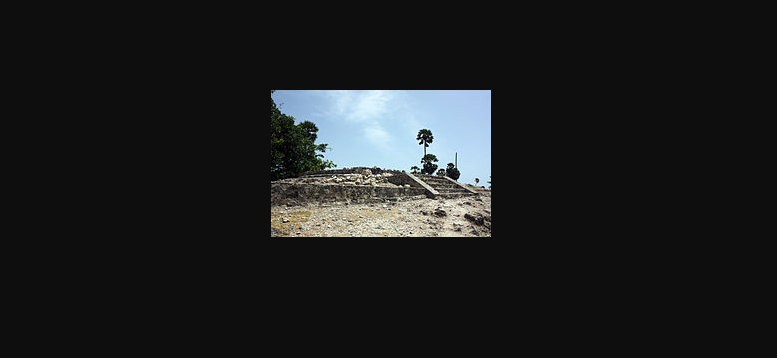The Mukkuvar people are people with an abnormal time consciousness, a feature that makes them seem as if time is constantly changing. They face challenges such as irregular school attendance, late loan repayments, and a difficult time regulating their work and lifestyle. This is primarily because the Mukkuvar use a lunar calendar to determine their day-to-day activities. They also have a hard time regulating their own lives, as they depend on the lunar calendar to determine their own personal schedules.
Traditions
The social environment of the Mukkuvar community varies from that of other caste, tribal, and agrarian communities. The Mukkuvar people’s religion is based on their relationship with nature, particularly to the sea. Their social and religious structures developed from their primary occupation. Fishing played a central role in early human evolution and evolved into a chief economic activity, before it was replaced by agriculture and civilization.
The Mukkuvar people live primarily in the Western and Eastern Provinces of Sri Lanka. They were originally from the Malabar Coast of Kerala and migrated to the island during the 12th century. The Mukkuvar established local polities in Jaffna, Mannar, and Puttalam. In the 15th century, they defeated the Karaiyars in a three-month siege. The Mukkuvar War is commemorated in a Sinhalese palm leaf manuscript.
Religion
The Mukkuvar are Christians of the Latin Catholic rite. Despite their religious heritage, they still display some of the religious traditions of their ancestors. They exhibit traces of neithel tinai, tantra, and saivism. They have endured the renewal process of a new religion. The Mukkuvar have a history that reflects their struggle with Christianity.
Mukkuvar fisherpeople do not depend on Hindu castes for their livelihood. This fact makes their religion antonomous. Mukkuvar people converted to Christianity around the 16th century, but Church discourse still clashes with their traditional religious practices. In his study, Ram examines these differences in religion and culture. He explains how Mukkuvar people construct femininity, which includes the worship of Eseki, a local Hindu goddess.
Social work interventions
A decade ago, Marianadu, a small island in the Arabian Sea, was a neocolonial settlement. Its location, about 10 kilometers from the Indian Space Research Organization, was considered ideal for experimenting with community development projects. Bishop Peter Bernard bought 30 acres of land there for this purpose, with the vision of creating a new Mukkuvar community. He recruited foreign and Indian social workers to assist him in realizing his vision.
The Mukkuvar community practices Mukkuva Catholicism, a religion which excludes other fisher folk communities. The Mukkuvars of Trivandrum & Kanyakumari districts practice primarily Catholicism, which harmonizes with their neithal heritage. Historically, fishing played a critical role in human society. It was the primary economic activity and priced agriculture, but its effects were felt more during the early stages of civilization.
Environmental issues
The Mukkuvar are valiant marine fishermen who live along the narrow sea shores of old Travancore state in India. Their history is rich and their culture is root in a cultural tradition that combines a deep understanding of the sea with a worldview that is shap by their experience with the water. In the Sangam literatures, the Mukkuvars have a rich history that has led to their unique worldview, which has evolved through the wisdom gained from deep sea fishers. The Mukkuvars’ understanding of space and time is based on the interconnectivity of the ocean currents and winds.
In 1960, Marianadu was a relatively new settlement, located about 10 kilometers west of the Indian Space Research Organisation. It was intend as an experimental community development project. Bishop Peter Bernard, who is Catholic, bought thirty acres of land near the city of Trivandrum and envisioned a community that would be sustainable and prosperous. He recruited social workers from India and abroad to assist in his vision. In the 1980s, the Mukkuvar community became known as Mukkuvar.
Political activism
Ram analyzes the implications of cultural validation for Mukkuvar political activism. Fisherpeople in the Mukkuvar region have been protesting against mechanised fishing, a trend that affects their livelihoods and ecology, and thousands of small-scale producers. Women and girls with higher education have active in many campaigns, but young female piece-rate workers are hardly represent in organisations. This article examines the cultural validation of work for Mukkuvar women and girls and its implications for political mobilisation.
Mukkuvars are fishermen who do many jobs and are consider a separate caste from other castes. Their traditional culture is root in fishing, and they have developed a distinctive way of self-definition. In addition, the caste became Christian in the sixteenth century, and the Church’s discourse contradicts the popular religion of the Mukkuvar. Ram analyzes this discourse, as well as the construction of femininity among Mukkuvar women. In contrast, the local Hindu goddess Eseki embodies “unruly” aspects of women.



